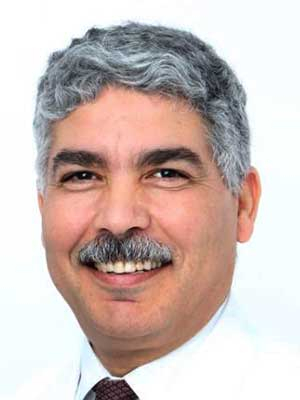Dubai: Doctors are once again advocating the importance of breastfeeding among mothers and parents-to-be on the occasion of the ongoing World Breastfeeding Week that ends on August 7.
Not only does breast milk contain all the essential nutrients required for a baby’s development, but it also acts as a shield against various diseases.
According to the World Health Organisation (WHO) and other major international health organisations, breastfeeding is recommended for a minimum of six months.
Dr Fozi Dakliah |
It is also suggested for mothers to continue breastfeeding as long it is convenient for the mother and child, Dr Fozi Dakliah, consultant neonatologist and acting medical director of Thumbay Hospital.
“We advise mothers to breastfeed their babies for so many reasons and benefits, one of which is emotional satisfaction and bonding between mother and child,” said Dr Dakliah.
Mothers who are breastfeeding are more likely to regain the size of their womb a lot quicker than those using alternative milk and formula.
Dr Dakliah pointed out the benefits of breastfeeding for a mother extend beyond the lactation period, as breastfeeding for a year has also been reported to reduce the risk of several types of cancer — such as breast cancer and womb cancer.
“Breast milk has numerous advantages over formula milk. It contains antibodies, which help protect infants from contracting infections as well as help reduce the risk of respiratory and bowel infections such as diarrhoea and vomiting,” explained Dr Dakliah.
He referred to “useful bacteria” found in breast milk that helps reduce the growth of the harmful bacteria in a baby’s gut, preventing necrotising enterocolitis, a disease that affects the gut of premature infants and those born weighing under 1.5kg.
Breastfed babies also have a 70 per cent less chance of contracting respiratory tract infection than bottle-fed babies.
Along with the immediate benefits of breastfeeding, the practice affects babies beyond their infancy period and can determine their future health status, as conditions such as obesity and type two diabetes are less common among breast-fed children, added Dr Dakliah.
Prepare for breastfeeding
For women who are expecting, thinking about breastfeeding may be overwhelming. However, Dr Dakliah pointed out that hormones change during pregnancy and naturally prepare a mother’s breast to physiologically produce milk after delivery.
In the case of premature babies, they may not be ready to breastfeed until a later stage.
“The mother can use a breast pump to express milk and make it readily available to be given to the baby by a special tube,” said Dr Dakliah.
He explained that doctors rarely advise mothers to formula-feed their babies, as very few conditions may prevent a woman from naturally providing milk.
“Conditions where a mother has HIV infection, or is on chemotherapy for cancer treatment could make it impossible for her to produce or express milk,” he added.
Dr Dakliah said it is natural that breast milk may not be available in abundance in the first few days, in which a mother can temporarily use formula. However, in the case of a premature infant, it is not advisable to use formula milk. “We provide formula milk to premature infants admitted to our neonatal unit until the mother’s milk becomes available. During this time, we provide special nutrition given through the baby’s vein,” he added.
Benefits of breastfeeding for the mother
- Less blood loss following delivery
- Better uterus shrinkage
- Helps to shed the extra weight gained during pregnancy
- Less chances of suffering from post-partum depression
- Delays the return of menstruation and fertility
- It is often less expensive than infant formula
- The long-term benefits include decreased risk of breast cancer, cardiovascular disease and rheumatoid arthritis
Benefits of breastfeeding for the child
- Builds immunity, prevents the risk of many life-threatening diseases
- Helps establish a strong bond between the mother and the child, making the child feel safe
- Greatly reduces the chances of colic pain
- Eliminates the probability of developing infectious diarrhoea
Source: Aster Hospital Mankhool













